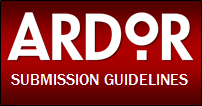
One of the double-edged advantages of the internet is the surplus of information and advice offered up for free. While this can be of great help in fixing something as simple as a headache, free advice can often prove harmful when it comes to the creative process. There are plenty of “rules” that writers should avoid or ignore when they begin to groom their game.
With the rise of self-publishing, articles on ‘the imperatives of writing’ are everywhere. Although well-intentioned, many of the blanket generalizations offered in these pieces may derail an inexperienced writer if taken too seriously. Writing is too subjective, too nuanced to be governed by broad-stroke rules of thumb.
With the rise of self-publishing, articles on ‘the imperatives of writing’ are everywhere. Although well-intentioned, many of the blanket generalizations offered in these pieces may derail an inexperienced writer if taken too seriously. Writing is too subjective, too nuanced to be governed by broad-stroke rules of thumb.
Here is a short list of writing advice to avoid (offered with a wink and a nod toward the irony of advising you to ignore advice). These writing rules are easy to find on the net and include advice which (while designed to help writers succeed) can often serve as a mental road-block, impeding productivity. Perhaps the best writing advice that you will find online is that rules are meant to be broken.
Rule #1: “Your writing must be perfect from the very first word.”
This advice is true of the final draft but should be ignored when you first sit down to write. It’s difficult to find time every day to write and if you spend the first couple of hours doing nothing but tinkering with what you’ve written or worrying over your story’s title (before allowing the story to emerge and take shape) you are your own worst enemy.
Creativity does not know chronology. It is perfectly fine to begin at that point in the story that is beckoning you right now – to write imperfect sentences and dialogue and characters. You can always build your story backward or forward once you have a draft to work with. In the words of Nora Roberts: “You can fix anything but a blank page.” Get going first and worry about perfection later.
Rule #2: “The first sentence has to say it all.”
This rule can, once again, limit your productivity if you don’t allow yourself to move past an imperfect first sentence. Remember that you can always go back and improve the first line – do your best and move forward. Once you’re in the flow of things and your piece begins to take shape you can return to the opening line and fine-tune it. This goes for every line in your story or poem!
Rule #3: “Adjectives and adverbs add nothing.”
This is situational – often the essence of a story is in its intensity. Removing descriptive words to make a piece direct and accessible is recommended, but it isn’t right for every sentence or every story. There are times when a powerful adjective can be your most valuable tool and often a single adjective-noun combination can convey what an entire sentence cannot. Look at each story, each sentence, each word objectively and take it on its own terms before you get out the red pen.
Rule #4: “Everyone writes about heartbreak between men and women – write something new.”
Who says that an oft-used subject is off limits? In most cases, what sets a story apart and makes it rise from the slush pile is its execution, not its plot. You might be writing about the same old rich girl/poor boy conflict, but if you’re clever enough to do it differently – offering readers something unique and valuable – then your work has a good chance of being appreciated and accepted.
So go ahead and describe your nineteenth heartbreak. If it’s creative and nuanced it might just be chosen over the story about the purple unicorn that came to earth to marry Lindsay Lohan (although I admit … that story IS worth reading).
Rule #5: “Writing is a waste of time unless it is lauded and praised.”
It’s natural for writers to try to achieve some level of acclaim and recognition with their work, but if you write in order to win writing contests rather than writing to offer some new insight or touch upon an essential truth … chances are that you won’t win any awards or go very far as a writer.
At the risk of sounding trite – good writing is born in that abstract, necessary place called the soul. Let your writing be a happy endeavor and I’m willing to bet that you’ll be happy with the results.
Rule #6: “Profundity is the pathway to recognition.”
If ‘profound’ means depth of thought and nuanced narration then this rule will keep you on the right track. But a lot of us tend to imagine that ‘profound’ means serious, life-altering or eye-opening. Not every story has to be like the climax of a dramatic film in order to succeed. Some stories work because they’re not afraid to be breezy, light-hearted and (sometimes) irreverent. There’s value in well-executed sarcasm and wit. Not every tale has to pull at your reader’s heart-strings. Often, leaving readers with a pleasing, tingly feeling or a sly smile will do just fine.
Rule #7: “Writing has to be genre-specific.”
There can be no bigger mistake than this. Nix those who tell you every love story has to wax poetic and run long while horror should strike its readers in the face. Writing must succeed on its own terms and good writing (in any genre) will succeed whether or not it subscribes to the “norm.”
If there is any rule at all that you should follow it is that you must put your heart into everything you write and dedicate yourself to offering readers the best version of the piece that you can.
Rule #1: “Your writing must be perfect from the very first word.”
This advice is true of the final draft but should be ignored when you first sit down to write. It’s difficult to find time every day to write and if you spend the first couple of hours doing nothing but tinkering with what you’ve written or worrying over your story’s title (before allowing the story to emerge and take shape) you are your own worst enemy.
Creativity does not know chronology. It is perfectly fine to begin at that point in the story that is beckoning you right now – to write imperfect sentences and dialogue and characters. You can always build your story backward or forward once you have a draft to work with. In the words of Nora Roberts: “You can fix anything but a blank page.” Get going first and worry about perfection later.
Rule #2: “The first sentence has to say it all.”
This rule can, once again, limit your productivity if you don’t allow yourself to move past an imperfect first sentence. Remember that you can always go back and improve the first line – do your best and move forward. Once you’re in the flow of things and your piece begins to take shape you can return to the opening line and fine-tune it. This goes for every line in your story or poem!
Rule #3: “Adjectives and adverbs add nothing.”
This is situational – often the essence of a story is in its intensity. Removing descriptive words to make a piece direct and accessible is recommended, but it isn’t right for every sentence or every story. There are times when a powerful adjective can be your most valuable tool and often a single adjective-noun combination can convey what an entire sentence cannot. Look at each story, each sentence, each word objectively and take it on its own terms before you get out the red pen.
Rule #4: “Everyone writes about heartbreak between men and women – write something new.”
Who says that an oft-used subject is off limits? In most cases, what sets a story apart and makes it rise from the slush pile is its execution, not its plot. You might be writing about the same old rich girl/poor boy conflict, but if you’re clever enough to do it differently – offering readers something unique and valuable – then your work has a good chance of being appreciated and accepted.
So go ahead and describe your nineteenth heartbreak. If it’s creative and nuanced it might just be chosen over the story about the purple unicorn that came to earth to marry Lindsay Lohan (although I admit … that story IS worth reading).
Rule #5: “Writing is a waste of time unless it is lauded and praised.”
It’s natural for writers to try to achieve some level of acclaim and recognition with their work, but if you write in order to win writing contests rather than writing to offer some new insight or touch upon an essential truth … chances are that you won’t win any awards or go very far as a writer.
At the risk of sounding trite – good writing is born in that abstract, necessary place called the soul. Let your writing be a happy endeavor and I’m willing to bet that you’ll be happy with the results.
Rule #6: “Profundity is the pathway to recognition.”
If ‘profound’ means depth of thought and nuanced narration then this rule will keep you on the right track. But a lot of us tend to imagine that ‘profound’ means serious, life-altering or eye-opening. Not every story has to be like the climax of a dramatic film in order to succeed. Some stories work because they’re not afraid to be breezy, light-hearted and (sometimes) irreverent. There’s value in well-executed sarcasm and wit. Not every tale has to pull at your reader’s heart-strings. Often, leaving readers with a pleasing, tingly feeling or a sly smile will do just fine.
Rule #7: “Writing has to be genre-specific.”
There can be no bigger mistake than this. Nix those who tell you every love story has to wax poetic and run long while horror should strike its readers in the face. Writing must succeed on its own terms and good writing (in any genre) will succeed whether or not it subscribes to the “norm.”
If there is any rule at all that you should follow it is that you must put your heart into everything you write and dedicate yourself to offering readers the best version of the piece that you can.

Megha Nayar is a 26 year old communications professional from India who has always lived for the written word. She is a copy/content writer by day, which affords her moments of retail therapy. By night she’s a dedicated writer of short stories, flash fiction, poetry and blogs. She writes for magazines, contests and anthologies and has placed six pieces in the six months since she began writing ‘seriously.’ She has been published in When Women Waken, The Tales Pensieve and The Renegade Word. Megha is currently compiling a collection of short stories themed on patriarchy, and hopes to ensnare a publisher soon.
Follow Megha on Twitter: @vvordyvvise
Follow Megha on Twitter: @vvordyvvise


 RSS Feed
RSS Feed

